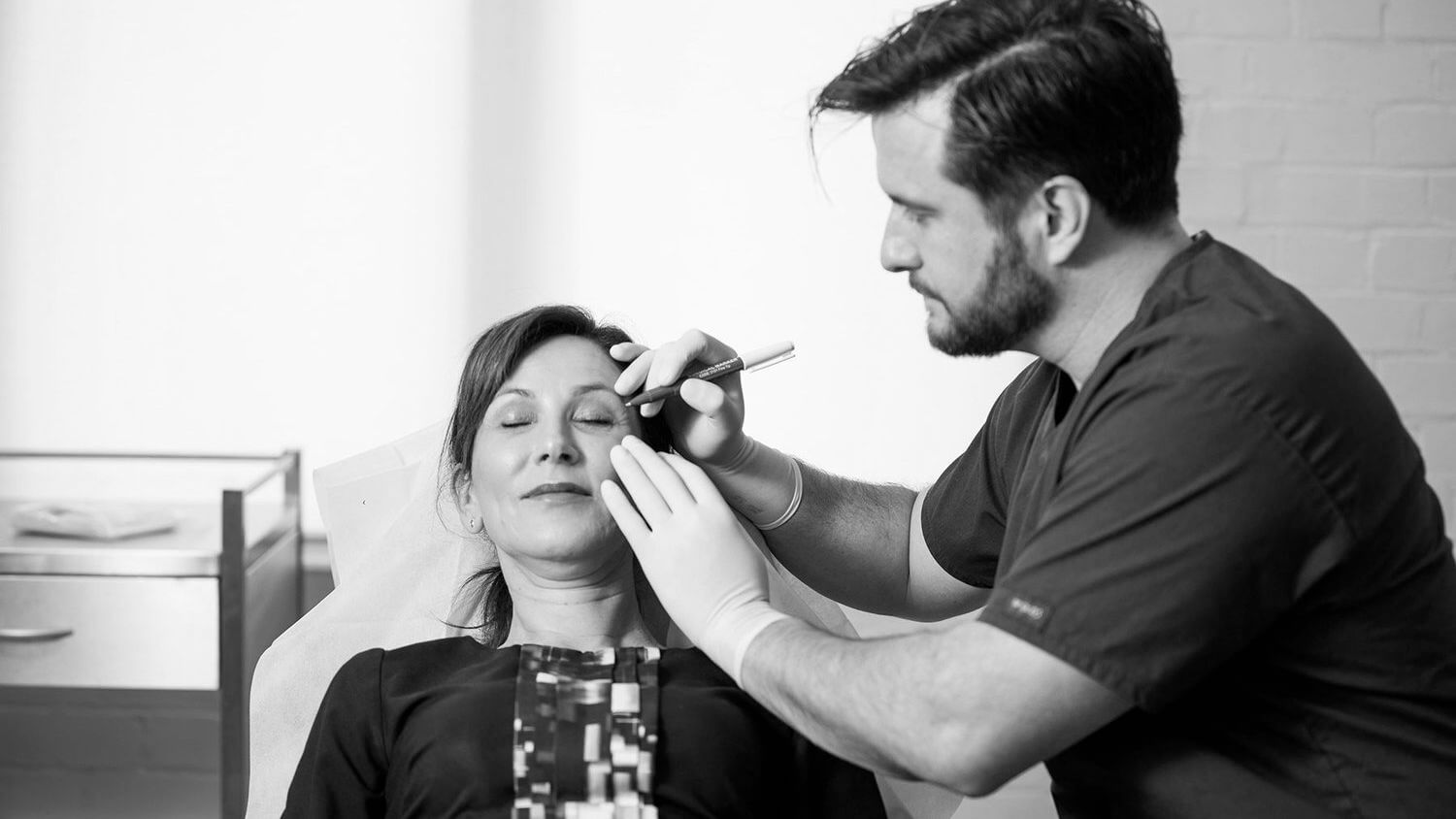WHAT WE CAN AND CANNOT SAY BASED ON AHPRA GUIDELINES AND TGA REGULATIONS
The Australian Health Practitioner Regulation Agency (AHPRA) and the Therapeutic Goods Administration (TGA) aim to protect the public by setting standards and regulations for registered health practitioners. That means there are restrictions around what we can say and how we talk about cosmetic procedures. You can access AHPRA guidelines here.
WHY HAVE AHPRA REGULATIONS CHANGED?
In 2022, an independent review into cosmetic surgery in Australia prompted AHPRA to reform the industry. A year after the review they had completed nearly all 16 identified reforms. AHPRA CEO Martin Fletcher said, “Getting these services is not like getting a haircut – these procedures come with risk. We want to ensure the public knows what safe practice looks like, and that practitioners are doing everything necessary to keep the public safe.”
WHAT’S THE DIFFERENCE BETWEEN COSMETIC SURGERY AND NON-SURGICAL COSMETIC PROCEDURES?
AHPRA defines cosmetic surgery as procedures that “involves cutting beneath the skin – including breast augmentation, facelifts and liposuction”. Non-surgical cosmetic procedures are defined as procedures that “may pierce the skin but not cut beneath it – including cosmetic injectables, thread lifts and laser treatments”.
WHAT ARE THE LATEST UPDATES TO AHPRA’S COSMETIC SURGERY ADVERTISING GUIDELINES?
A recent update to AHPRA guidelines and TGA regulations means tighter restrictions around what can and cannot be said when advertising cosmetic procedures, especially cosmetic injectables. And because we’re an ethical practice, we’ve voluntarily complied.
THE 10 GUIDELINES FOR RESPONSIBLY ADVERTISING COSMETIC SURGERY
This is a summary of the AHPRA guidelines around advertising cosmetic surgery. More information can be found on AHPRA’s website here.
- Practitioner responsibility
A medical practitioner’s duty of care to their patient is the most important consideration throughout all advertising.
- Titles and claims about training, qualifications, registration, experience and competence – Medical practitioners must be clear and unambiguous about their qualifications and medical registrations. Only registered medical practitioners who hold specialist registrations in a recognised specialty may use the relevant specialist title in advertising.
- Financial and other incentives
Incentives, gifts, discounts, even “bundles” are not allowed when advertising cosmetic procedures.
- Testimonials
Testimonials from customers are no longer allowed in advertising – even liking or commenting on a patient’s post is considered a testimonial, so the guidelines are strict.
- Social media influencers and ambassadors
Companies that engage influencers or ambassadors are responsible for any content created by them and must ensure it complies with AHPRA guidelines, including the ban on testimonials.
- Before and after images
A single image showing a before and after image cannot be used in any advertising. Any imagery used to show the intended outcome of procedures must include a warning that results are individual and vary.
- Risk, recovery and idealising cosmetic surgery
Medical practitioners must ensure the risks and potential risks of cosmetic surgeries are clearly communicated. Realistic recovery expectations must be clearly communicated including recommended time, support and aftercare.
- Body image and promotion for wellbeing and improved mental health
Medical practitioners must recognise that not all patients have a realistic view of their body image. Cosmetic surgery advertising must not suggest or give the impression that cosmetic surgery is the only option for individuals who are unhappy with their appearance.
- Realistic expectations and outcomes
Cosmetic procedures must not be advertised in a way that creates unrealistic expectations of outcomes. Any advertising claims about what can be achieved through cosmetic surgery must be objective, demonstrable, or provable in order to maintain patients’ reasonable expectations of outcomes.
- Targeting people potentially at risk
Medical practitioners must recognise that children and young people, along with other specific at-risk patient groups, are particularly vulnerable to body image pressures and negative body image perceptions and these groups must not be targeted by any advertising.
FINDING THE RIGHT PROCEDURES FOR YOUR GOALS
Our mission is to provide ethical, responsible and expert cosmetic and reconstructive surgery. So we can create a treatment plan specific to your personal goals, we start with an initial consultation. In this consultation, we get to know you and your goals so we can recommend procedures specifically aligned with achieving the best outcome for you.
HELPING YOU MAKE INFORMED DECISIONS
As an ethical and responsible practice, we aim to provide you with all the information and context you need to know to make an informed decision. Working closely with referring doctors and professionals, our experienced and expert team is committed to providing reconstructive and cosmetic procedures that help meet your health and aesthetic needs.
